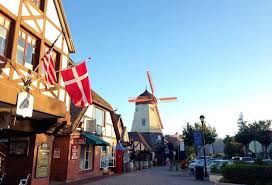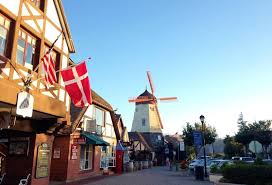
For years, Danish governments have been keeping a tight lid on immigration under pressure from nationalists.
But the case that more foreign workers are needed is being made far more important after the Finance Ministry of the country that made global headlines by confiscating valuables from refugees. The country is faced by a potential labor shortage.
But the ministry is trying to provide hard facts to an often emotional debate that’s been playing a key role in election campaigns across Europe, the U.S. and the Middle East by its number crunching, based on vast amounts of welfare data.
An unskilled refugee can be easily turned into a friend of the tax office by even the lowest paid of full-time jobs and this is the simple conclusion for Denmark. An annual salary of 200,000 kroner ($28,540) -- easily achieved by working for 40 hours a week on the minimum wage, when reached by a migrant worker is the break-even point in Denmark.
Foreigners from other advanced economies tend to be net contributors from the start since they generally move having already secured a job in Denmark, unlike economic migrants or asylum seekers fleeing conflict.
But based on what the contributions would look like assuming a similar set of skills and what migrants would contribute if they were as integrated into the labor market as the natives, the ministry took the data one step further and made a series of projections.
"Roughly speaking, immigration from western countries helps government finances while immigration from non-westerners imposes costs," Finance Minister Kristian Jensen said in a recent interview in Copenhagen. "But it’s not a question of preferring one group or another. What we should strive for is getting all immigrants a job."
As much as 20 billion kroner ($3 billion) a year to the state coffers could be added by raising immigrants’ labor participation rates and skill levels to be on par with Danes, according to ministry calculations.
The Finance Ministry says it show its policies are working.
Its asylum policies have bene tightened since assuming office in June 2015 by the government led by Prime Minister Lars Lokke Rasmussen’s minority government, which relies on the parliamentary support of the anti-immigration Danish People’s Party. It has also made permanent residence permits dependent on applicants having a job and speaking Danish and has also cut benefits for new arrivals, pushing up employment numbers.
The country’s integration minister, Inger Stojberg, seemingly has been delighted by the plummeting number of new arrivals to Denmark. By posting a photo of a sponge cake topped by a Danish flag for celebrating the government’s 50th immigration tightening measure, Inger Stojberg, caused a social media storm last month.
However, the government is taking a hard-business approach by exploring ways of attracting more skilled workers, with the economy now facing the prospect of full employment.
“Immigration can be good business for government finances as long as people want to work,” Jensen said. “If immigration doesn’t involve the labor market, it’s bad business.”
(Source:www.bloomberg.com)
But the case that more foreign workers are needed is being made far more important after the Finance Ministry of the country that made global headlines by confiscating valuables from refugees. The country is faced by a potential labor shortage.
But the ministry is trying to provide hard facts to an often emotional debate that’s been playing a key role in election campaigns across Europe, the U.S. and the Middle East by its number crunching, based on vast amounts of welfare data.
An unskilled refugee can be easily turned into a friend of the tax office by even the lowest paid of full-time jobs and this is the simple conclusion for Denmark. An annual salary of 200,000 kroner ($28,540) -- easily achieved by working for 40 hours a week on the minimum wage, when reached by a migrant worker is the break-even point in Denmark.
Foreigners from other advanced economies tend to be net contributors from the start since they generally move having already secured a job in Denmark, unlike economic migrants or asylum seekers fleeing conflict.
But based on what the contributions would look like assuming a similar set of skills and what migrants would contribute if they were as integrated into the labor market as the natives, the ministry took the data one step further and made a series of projections.
"Roughly speaking, immigration from western countries helps government finances while immigration from non-westerners imposes costs," Finance Minister Kristian Jensen said in a recent interview in Copenhagen. "But it’s not a question of preferring one group or another. What we should strive for is getting all immigrants a job."
As much as 20 billion kroner ($3 billion) a year to the state coffers could be added by raising immigrants’ labor participation rates and skill levels to be on par with Danes, according to ministry calculations.
The Finance Ministry says it show its policies are working.
Its asylum policies have bene tightened since assuming office in June 2015 by the government led by Prime Minister Lars Lokke Rasmussen’s minority government, which relies on the parliamentary support of the anti-immigration Danish People’s Party. It has also made permanent residence permits dependent on applicants having a job and speaking Danish and has also cut benefits for new arrivals, pushing up employment numbers.
The country’s integration minister, Inger Stojberg, seemingly has been delighted by the plummeting number of new arrivals to Denmark. By posting a photo of a sponge cake topped by a Danish flag for celebrating the government’s 50th immigration tightening measure, Inger Stojberg, caused a social media storm last month.
However, the government is taking a hard-business approach by exploring ways of attracting more skilled workers, with the economy now facing the prospect of full employment.
“Immigration can be good business for government finances as long as people want to work,” Jensen said. “If immigration doesn’t involve the labor market, it’s bad business.”
(Source:www.bloomberg.com)














